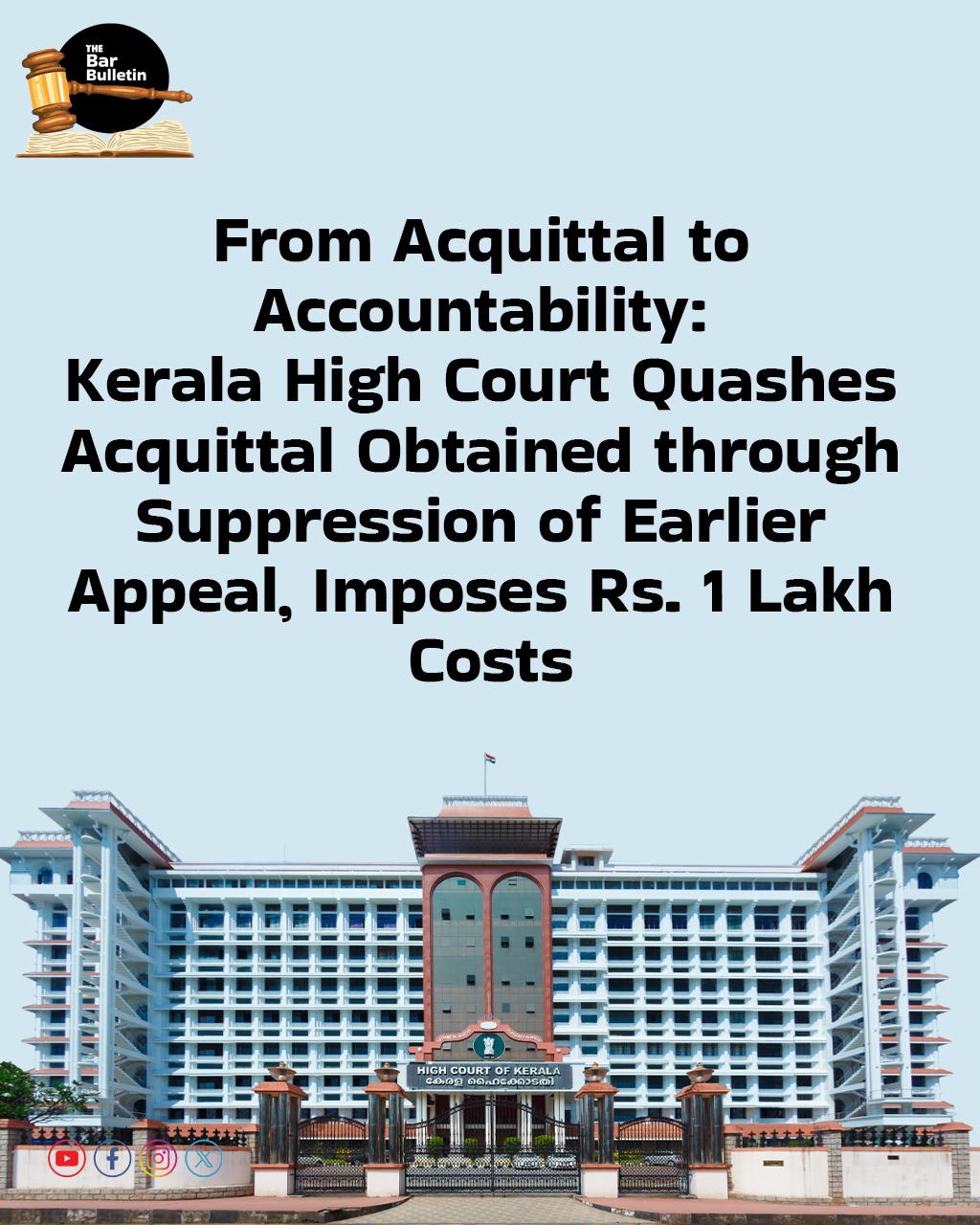The Kerala High Court, exercising its suo motu revisional jurisdiction, set aside a judgment of acquittal delivered in a second criminal appeal that had been filed by the same accused after his earlier appeal against the same conviction and sentence had already been dismissed. The Court also imposed ₹1,00,000 as costs on the accused for suppressing the earlier proceedings, and issued detailed directions to prevent such procedural abuses in the future.
The proceedings arose from a letter of the District and Sessions Judge, Alappuzha, flagging a serious anomaly. In the instant case, the Judicial First Class Magistrate, Kayamkulam, had convicted Accused Nos. 1 to 3 under Sections 392 and 457 IPC, acquitting Accused No. 4. The present second respondent, A3, along with A2, filed appeals against this order before the Additional Sessions Judge-I, Mavelikkara, which were dismissed by a common judgment on 9 April 2013, confirming the convictions.
Nearly three years later, A3 filed another criminal appeal through a different lawyer, suppressing the fact of the prior appeal. This appeal was filed with an application to condone 1,223 days’ delay, which was allowed. The appellate court heard the matter afresh and, on 30 January 2016, acquitted the accused. Neither the court registry nor the public prosecutor brought the earlier dismissed appeal to the appellate judge’s attention.
Upon receiving the Sessions Judge’s report, the bench comprising Justice P.V. Kunhikrishnan registered a suo motu criminal revision. It sought a vigilance inquiry, which revealed that there was no automated system in district courts to detect previously filed appeals against the same judgment, and that such identification required manual register checks. Though the trial court had earlier transmitted the trial court records for the first appeal, they were later placed before the court for the second appeal as well. The presiding officer who decided the second appeal had since retired, and the lawyer who filed it claimed ignorance of the earlier case.
The Court held that filing a second appeal after dismissal of the first, without disclosure, was an abuse of process. The second appellate judgment could not stand in the light of the first appellate order confirming the conviction. While finding no evidence of mala fides on the part of the lawyer, the Court concluded that the accused must be penalised heavily to protect the system.
Accordingly, the High Court set aside the acquittal order dated 30 January 2016 acquittal, directed A3 to deposit ₹1,00,000 with the Kerala State Legal Services Authority within one month, and mandated the Registrar (District Judiciary) to circulate the judgment to all Principal District Judges.
The Court directed that until a unified case-type mechanism is implemented on 1 January 2026, Principal District Judges must ensure manual verification to avoid repeat appeals on the same matter. Copies were also ordered to be sent to the Home Secretary and the State Police Chief, with instructions to police to inform prosecutors of prior proceedings to prevent similar lapses.
![]()



